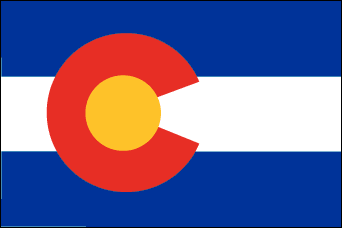DENVER —Convenience stores that are beginning to embrace home delivery as a smart marketing tool now face blowback from customers because that delivery comes with a new state fee.
Effective July 1, retailers had to charge 27 cents per delivery by motorized vehicle if even one item on the order was otherwise taxable. So, if a person orders toothpaste, for example, along with a meal, the 27 cents will appear on the bill that usually already includes a store delivery fee.

To top it off, although the state will not tax the fee some localities are seriously considering it.
The Colorado Legislature passed the law last year to raise money for public works projects. But it has caused much confusion on the part of retailers.
For instance, the money accumulated cannot be added to the sales tax remittance to the state. It has to go separately along with a special form. A special account must be established with the state to keep track.
Retailers are wrestling with how to create software to handle the fee and some have asked for a delay to set it up. But the state responded that it is unable to allow a delay. However officials promised to be lenient in enforcement until the program settles in.
Americans for Prosperity, founded by the Koch brothers, has filed suit against the state alleging the legislature skirted the TABOR Law, which requires a vote of the people for any new tax. The state has asked the court to dismiss the suit. It maintains it is a fee, not a tax.
Governor Jared Polis defended the fee saying, "Coloradans are smart enough to understand that these delivery trucks are contributing to wear and tear on our roads."
But opponents argue that in a time of high inflation this adds to the burden of consumers. The state did suspend a rise in the gasoline tax that had been scheduled to kick in this year. It was put off until 2023.
Some blamed the Democrats for the fee, but the Governor noted it had bipartisan support when the law was passed.
DENVER —This month a law prohibiting convenience stores and other retailers from using single-use plastic bags and foam containers takes effect.
The law was passed last year in an effort to cut down on the number of plastics polluting the state.
Until this month, stores could pack goods in plastic bags if they charged customers a ten cent fee. That fee was to be divided between the municipality or county and the retailer. The law also allows retailers to use up an existing inventory acquired before this month, but that inventory must be depleted by March of 2023.
DENVER —Big money has been poured into a campaign to get wine onto shelves of food retailers, including convenience stores.
DoorDash and Instacart both contributed more than $400,000 each in support of an initiative that would seek voter approval this November. Target and two grocery chains contributed $24,000.
DENVER —A dog made its way onto a convenience store's display of mug shots of shoplifters caught on security cameras.
The customer's mutt acquired his place on the "Wall of Shame" by stealing a jerky. He was unable to make a clean getaway. The dog kept a stiff upper lip in the photo, but the customer was initially mortified. However, the convenience store owner, who established the display because he was tired of losing money to shoplifters, got a kick out of the incident. He modified the dog's shame by labeling him "A Good Boy" below the caption "Beef Jerky Thief."
DENVER —Colorado gasoline prices began to come down last month, but were still above the national average.
A gallon of unleaded was selling at an average of $4.43. The national average at that time was $4.23. Diesel retailed at $5.17.
During the prior month it cost $4.90.
Colorado Springs motorists were paying $4.45, Denverites $4.38. Vail topped those prices as usual, coming in at $4.55.
COLORADO SPRINGS —Kum & Go isn't giving up the fight to build a gasoline station and convenience store on the south side of the city despite fierce neighborhood opposition.
The City Planning Commission at first approved the project, then reversed its decision, siding with the opposition. The gas station chain has now appealed to the City Council.
Neighbors contend the station isn't necessary because there are plenty of nearby pumps and they fear traffic congestion will get worse. Possible pollution is another issue.
Kum & Go has tried to work with the public to ease their qualms but the neighbors are not changing their stance.
AURORA —A car wash business here survived the pandemic by seeing to the needs of overburdened front line workers.
The Dutch Car Wash was closed for a few weeks after the city virtually shut down, but when it reopened it offered free washes to essential hospital workers, teachers and first responders. It was ovewhelmed with customers and gave away $40,000 worth of free washes. Management considered the money well spent.
Hundreds of healthcare workers later signed up for packages. Others flocked to the business because of its display of humanity.
Owners Willy and Christina Beumer looked at standing car washes when they decided to go into the business but opted to erect their own. By installing a license plate recognition system they were able to be contact-free during the early days of the pandemic. There were some glitches, they said, but they were worked out and the business had done half a million washes by September 2021.
Originally published in the September 2022 issue of the O&A Marketing News.
© KAL Publications Inc. 2022
